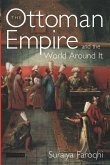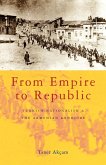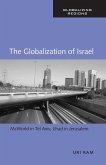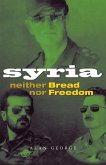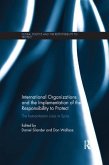For nearly a century, the United States has waged an unbroken campaign across the Middle East-sometimes in the name of democracy, sometimes in the name of security, and always in the pursuit of power. Empire Without End: America's Hundred-Year War in the Middle East is the definitive account of that relentless dominion. It reveals how a global superpower transformed a region of ancient civilizations into a permanent battlefield of influence, oil, and ideology. From the CIA's 1953 coup in Iran to the drone strikes of the modern era, the book unearths the hidden logic behind a century of intervention. It chronicles how ideals of freedom were used to justify regime changes, how oil became both weapon and weakness, and how modern technology turned the battlefield invisible. Through coups, invasions, and covert operations, America's empire evolved-no longer building colonies, but controlling economies, borders, and beliefs. Through vivid historical storytelling, Empire Without End connects the great geopolitical milestones of the modern era: the fall of Mossadegh, the rise of the Shah, the wars in Iraq, the Arab Spring, the fall of Libya, and the digital colonization of information. It examines how military-industrial interests, corporate power, and propaganda merged to create a self-sustaining cycle of conflict. The book draws on newly revealed documents, journalistic investigations, and firsthand accounts to expose how every promise of peace concealed a strategy of control. Yet amid the devastation, a different story endures: that of the people who resisted. From the streets of Tehran to the ruins of Gaza, from Baghdad's markets to the refugee camps of Syria and Yemen, Empire Without End gives voice to the victims of empire and the defiance that survived its reach. It is a study of both oppression and resilience-of a century that reshaped not only the Middle East, but America itself. Powerful, haunting, and meticulously researched, this book is more than a chronicle of war; it is a mirror held up to the empire that refuses to recognize its reflection. As the world enters a new age of artificial intelligence, surveillance, and digital warfare, Empire Without End asks the question that will define the future: can an empire that never ends ever truly survive?
Bitte wählen Sie Ihr Anliegen aus.
Rechnungen
Retourenschein anfordern
Bestellstatus
Storno


